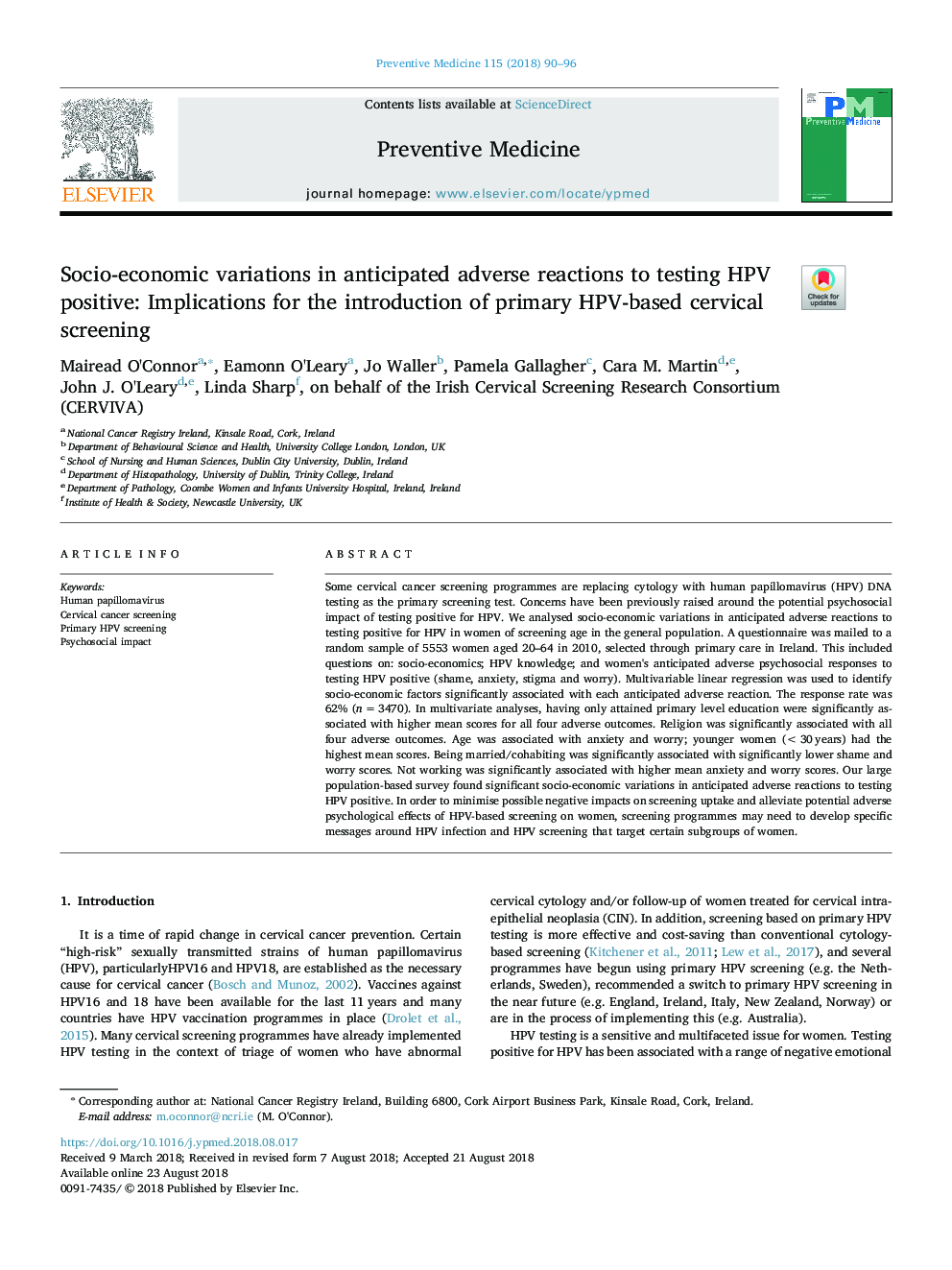| Article ID | Journal | Published Year | Pages | File Type |
|---|---|---|---|---|
| 9991954 | Preventive Medicine | 2018 | 7 Pages |
Abstract
Some cervical cancer screening programmes are replacing cytology with human papillomavirus (HPV) DNA testing as the primary screening test. Concerns have been previously raised around the potential psychosocial impact of testing positive for HPV. We analysed socio-economic variations in anticipated adverse reactions to testing positive for HPV in women of screening age in the general population. A questionnaire was mailed to a random sample of 5553 women aged 20-64 in 2010, selected through primary care in Ireland. This included questions on: socio-economics; HPV knowledge; and women's anticipated adverse psychosocial responses to testing HPV positive (shame, anxiety, stigma and worry). Multivariable linear regression was used to identify socio-economic factors significantly associated with each anticipated adverse reaction. The response rate was 62% (nâ¯=â¯3470). In multivariate analyses, having only attained primary level education were significantly associated with higher mean scores for all four adverse outcomes. Religion was significantly associated with all four adverse outcomes. Age was associated with anxiety and worry; younger women (<30â¯years) had the highest mean scores. Being married/cohabiting was significantly associated with significantly lower shame and worry scores. Not working was significantly associated with higher mean anxiety and worry scores. Our large population-based survey found significant socio-economic variations in anticipated adverse reactions to testing HPV positive. In order to minimise possible negative impacts on screening uptake and alleviate potential adverse psychological effects of HPV-based screening on women, screening programmes may need to develop specific messages around HPV infection and HPV screening that target certain subgroups of women.
Related Topics
Health Sciences
Medicine and Dentistry
Complementary and Alternative Medicine
Authors
Mairead O'Connor, Eamonn O'Leary, Jo Waller, Pamela Gallagher, Cara M. Martin, John J. O'Leary, Linda Sharp, on behalf of the Irish Cervical Screening Research Consortium (CERVIVA) on behalf of the Irish Cervical Screening Research Consortium (CERVIVA),
